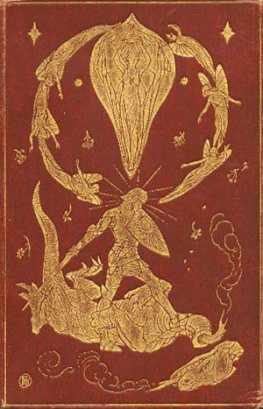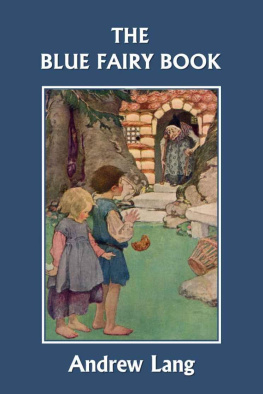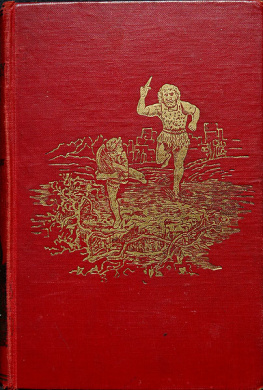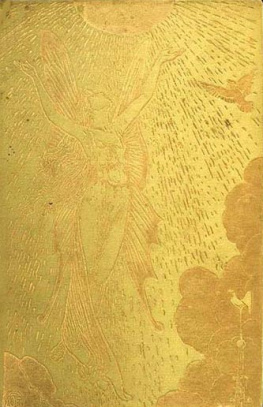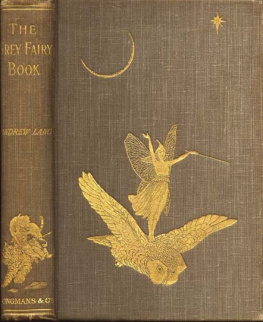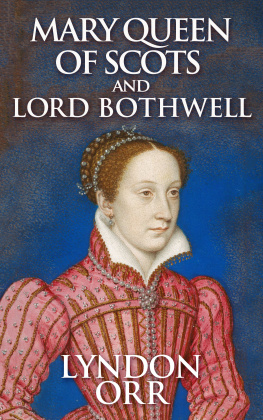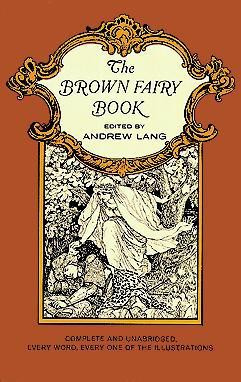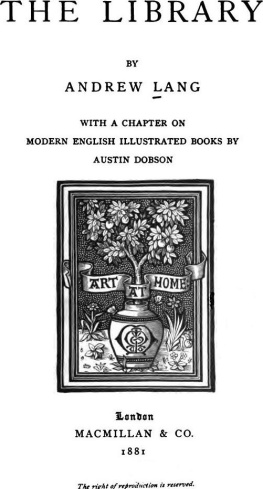The History Of Scotland Volume 6
From Bothwell To James VI.
Andrew Lang
Contents:
Intrigues Of Spain, England, And Bothwell (1593 1595)
The King Conquers The Preachers (1596 - 1597)
James On Ill Terms With England (1597 1600).
THE HISTORY OF SCOTLAND VOLUME 6, Andrew Lang
Jazzybee Verlag Jrgen Beck
86450 Altenmnster, Loschberg 9
Germany
ISBN: 9783849604660
www.jazzybee-verlag.de
INTRIGUES OF SPAIN, ENGLAND, AND BOTHWELL (1593 1595)
BOTHWELL'S new enterprise was at once the most grotesque and the most picturesque of those to which James fell a victim. A Stewart and a Hepburn, Bothwell was aided by the clan of which his king was the chief. Lennox, and Ochiltree, and Atholl, all in the plot, were all Stewarts (the existing House of Atholl are Murrays ofTullibardine in the male line and Stewarts by female descent). The Countess of Atholl was a daughter of Lady Cowrie, whose revenge for her husband's execution in 1584, and for the insults and injuries inflicted on herself by Arran, had never yet been sated. The House of Cowrie had been restored in 1585, on Arran's fall, to its lands and dignities; its head, John, Earl of Cowrie, was at this time a youth of sixteen or seventeen, who had been studying in the University of Edinburgh under the celebrated minister, Mr. Rollock. Probably he was now at work on his thesis for his Master's degree, which he took in August. He was then an ardent Protestant, and we shall presently find him already engaged in a revolutionary conspiracy against the king. We are not informed, however, that he was present or took any part in Bothwell's new enterprise, though it had for its base the town house of the Cowrie family the house which James had held in suspicion (p. 362).
The house of the Cowries was behind and adjacent to the Palace of Holyrood, and thither on the night of July 23 Bothwell, with the basely adventurous John Colville, was secretly conveyed. Between the Cowrie mansion and the palace was a covered passage patent at all times. Coming through this passage, from the palace, Lady Atholl led back Bothwell and Colville into James's ante-chamber, hid them behind the arras, and locked the door of the queen's chamber. Here, it seems probable, they waited while the gentlemen of the clan of Stewart took possession -of the outer and inner courts of Holyrood in the grey of the July dawn. James, early astir, was " private in a retiring-room," his majesty's clothes were loose, and " the points of his hose not knitted up," when Colville and Bothwell appeared before him with drawn swords in their hands. Bothwell said to the king, " Lo, my good bairn, you that have given out that I sought your life, it is now in this hand! " So Bothwell later told the Dean of Durham. James, with a cry of treason, fled as well as he could to the queen's chamber. The door was locked. He turned and called the intruders false traitors, bidding them strike if they durst. Bothwell and Colville knelt down, Atholl and Ochiltree arrived and interceded for the impudent suppliants. James derided their pretence of asking for forgiveness and offering to "thole an assize" on the old charge of witchcraft. He would not live a prisoner and dishonoured. Bothwell, still kneeling, kissed the hilt of his sword and offered it to James, lowering his head and tossing aside his long love-locks. James rose and took Bothwell apart into the embrasure of a window. News had now reached the citizens, "the bells were rung backward "; the burgesses, however, gathered but slowly. They may have heard Davidson's sermon; was it for them to interfere between the king and " sanctified plagues "? Hume of North Berwick, with a few other gentlemen, came under the king's windows, offering to rescue him or lose their lives. Sir James Melville was with Hume, and "cried up at the window of his majesty's chamber, asking how he did? He came to the window, and said all would be well enough, he had agreed with them on certain conditions, ' which are presently to be put into writing. Therefore,' said he, ' cause so many of the town as are come to my relief to stay in the abbey kirkyard till I send them further word, and return again within half an hour yourself. ' ' But few of the town had gathered, and these now retired, " so great was their miscontent for the time that many desired a change." Melville then went to the rooms of the Danish ambassadors, who sent him back to make anxious inquiries. James appeared at the window with the queen and said that all was well. Melville was later admitted to see James, quoted Plutarch, and prosed in the manner of Polonius, Later James met the ambassadors, but could not tell them whether he was captive or not. Captive he was; a new guard was appointed, under Ochiltree, one of the conspirators. There was something obscure and unfathomable in this plot. Bothwell, we shall see, met the Dean of Durham, who on August 15 favoured Burghley with a second account of his interview with Bothwell, fuller than that of August 5. The Queen of Scotland, the Dean said, was " not unacquainted with his greatest affairs," and the Dean seems to hint that she was better for England to deal with than the king. Moreover, she was jealous of Morton's "fayre daughter." A letter had been written as to the succession to the Scottish throne, intercepted, and brought to Bothwell. The Dean ends by strenuously recommending Bothwell to Elizabeth as " likeliest to do her faithfullest service in that country." It is useless to guess at the intrigue as to the Scottish throne: it is not credible that the young Cowrie was thought of, on the strength of his fabled Tudor descent.
Whatever Bothwell's secret purposes and his relations with James's queen may have been, the conditions which he accepted from James were these: Full remission of all offences for himself and his accomplices, to be ratified in the Parliament of November 1593. Home, Maitland, the Master of Glamis, and Sir George Hume to be dismissed from office; Bothwell and the rest meanwhile to retire " where they thought good." Lennox, Atholl, the Master of Gray, the Provost, the bailies, and six preachers signed this treaty; "the ministers of the Kirk showed themselves highly gratified at Bothwell's return," says Bowes.
Such was the plot, directed from England by the Ministers of Elizabeth, and worked by the Stewarts and Ruthvens of Cowrie. It demonstrates the utter helplessness of James, who, denounced by his clergy, lost the services of his father's murderer, Maitland; and, betrayed by his own clan, was thrown on the mercy of his most insolent rebel. If, in such circumstances as these, James was unwilling to extirpate his Catholic subjects, and tempted to look abroad for the assistance denied him by his kinswoman, Elizabeth, by his clan, and by his clergy, perhaps he cannot be very severely blamed. His Catholic earls, the Spanish party in Scotland, did blame him for keeping them in hand while he had no intention of joining them.
Bothwell now rode to Berwick, met John Carey (son of Lord Hunsdon), professed his gratitude to Elizabeth, and announced his hope of being made " Lord Lieutenant of the whole country." The ambition of his accomplice, John Colville, was to be Secretary of State! Bothwell then rode to Durham, on his southward way, quartered himself on Toby Matthew, Dean of Durham, already mentioned, and regaled the horrified dignitary of a respectable Church by a lively account of his performances. He had not betrayed Elizabeth to James, he said; and he had told the king that he might forget the death of Mary, as James had forgiven it. He advised that a plan of Elizabeth's for uniting the Catholic and Protestant parties in Scotland should be deferred, "lest the multitude of the one may in time, and that soon, wreck the other, being fewer in number, and so become rulers of the king." Hence it would appear that the Catholics were still a numerical majority, which is unexpected. Bothwell then wrote a letter to Elizabeth, "Most Renowned Empress," kissing "her heavenly hands." Had he been an English subject, Bothwell would have rivalled Essex he wrote in the style that Gloriana loved. He picked up on the Borders some hounds and horses for James, and was " cleansed " of witchcraft at his assize on August 10. Being in power, he was acquitted, but a letter to him from John Colville, later, makes it very probable that Bothwell had really tried an experiment in poisoning James, by aid of Richard Graham, the wizard. He had only dealt with the wizard Graham, he said, in the interests of the dying Angus.



